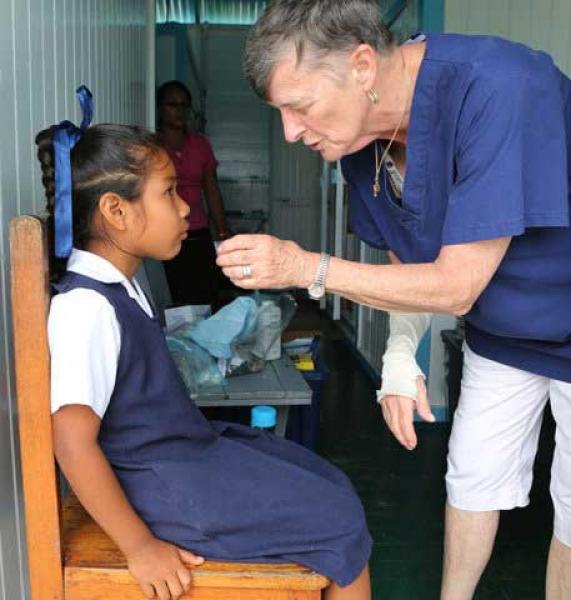
Last week, William Easterly, a high-profile global poverty expert and professor of economics at New York University, published an article in Foreign Policy called, “Democracy is Dying as Technocrats Watch.”
In the article, Easterly cited the success of Donald Trump’s disturbing rhetoric and a documented global decline in support for democracy. He laid the blame on “technocracy” being an inadequate response to emotionally-charged messaging. Easterly pointed to the contrast between Trump’s approach, with a slogan that fits on the front of a baseball cap and appeals to both fear and pride, with Hillary Clinton’s message dominated by detailed, bullet-point plans to confront dozens of issues and sub-issues.
“Grand sentiments can’t sustain politics by themselves; technical expertise has its place,” Easterly wrote. “But the long reign of technocracy has deprived us of the moral weapons needed to defend the core values that are the foundation of democracy.”
I am skeptical of any “here’s why this happened” analysis offering over-arching explanations for Trump’s surprising victory. There seem to be far too many variables involved for a simplistic theory to capture all that is going on here. But I think there are lessons in Easterly’s argument—and Trump’s victory--for access to medicines advocates. These lessons are not new: Trump’s focus on emotions—negative as much as positive emotions, to be sure—comes right from the textbook “aim for the heart, not the head” strategy of political persuasion. Trump is certainly not the first politician to successfully travel this route.
Access to medicines advocates definitely want to aim for the head, as we have strong legal and economic arguments to make. (So says the law professor who is the author of too-many articles and posts on overlooked provisions in the Bayh-Dole Act of 1980, returns on research investments and trade agreement terms!)
But advancing technical arguments can’t be our primary approach. The most powerful case we can make is a moral one: that life and health should be available to all, not for sale to a lucky few who can afford it. That is an argument that aims for the heart, and is backed up by sacred texts , public opinion research , and a long history of communities and researchers treating medicines like a public good, not a commodity like a big-screen TV.
And it is an argument that is a proven winner in the access to medicines struggle. The HIV/AIDS treatment campaign at the turn of the century won not because of nations’ legal flexibilities to pursue generic medicines was built into the Trade-Related Aspects of Intellectual Property Rights agreement, even though that technical, legal justification was present. No, the HIV/AIDS treatment campaign won because people took to the streets, to the media, and to the pulpits to show the world that the carnage of millions dying untreated due to monopoly medicine pricing was immoral, plain and simple.
That needs to be our core message now as well. Across the world and across the street in our own communities, people of faith provide healthcare and food and shelter to those in need. Our brothers and sisters doing this service, and all of us who support them, are walking the walk on caring for all, so we have a unique opportunity to talk the talk as well.
We can bring a moral voice to a medicines conversation that is too often weighed down by discussions of intellectual property, trade agreements, and markets. Real change will come when we reach the hearts of our neighbors and our leaders.
To receive weekly blog posts and updates from People of Faith for Access to Medicines, sign up here.
